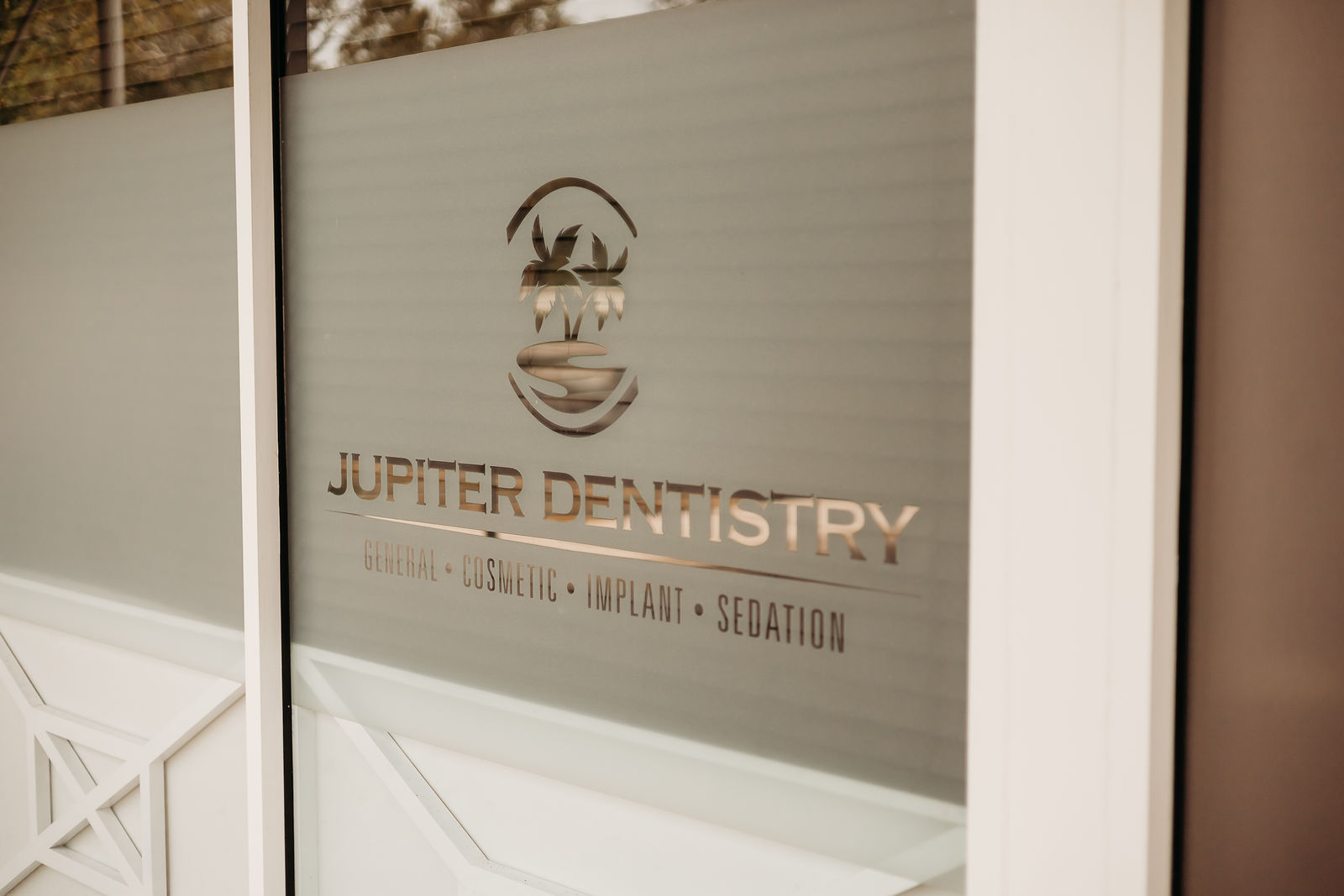Gum Disease Treatment at Jupiter Dentistry


Moderate periodontitis is a common but serious dental condition that affects the gums and bone structure of your teeth. It’s a stage of gum disease that can lead to severe dental issues if left untreated. At Jupiter Dentistry, we specialize in diagnosing and treating moderate periodontitis, helping our patients restore their oral health and prevent further complications.
If you’re experiencing symptoms of gum disease, contact our dentist in Jupiter today at (561) 575-5599.
What Is Moderate Periodontitis?
Periodontitis is a serious gum infection that damages the soft tissue and can destroy the bone supporting your teeth. It begins as gingivitis, a mild form of gum disease that causes irritation and inflammation of the gums. However, when gingivitis progresses without treatment, it develops into periodontitis, which can be classified into stages: early, moderate, and advanced.
- Increased gum inflammation: Gums are red, swollen, and bleed easily.
- Pocket formation: The spaces (or pockets) between the teeth and gums deepen as the infection worsens.
- Bone loss: There’s a noticeable loss of bone structure around the teeth.
- Bad breath: Persistent foul breath (halitosis) due to bacterial growth in the pockets.
- Loose teeth: Teeth may become loose due to the damage to the bone and supporting tissue.
Symptoms of Moderate Periodontal Disease
Moderate periodontal disease can cause various symptoms, including:

- Swollen or Bleeding Gums: Gums can become inflamed and appear red, swollen, and tender. You may notice bleeding gums as well when brushing or flossing your teeth.
- Bad Breath: The bacteria in the pockets produce a foul smell that causes bad breath.
- Receding Gums: The gums start to pull away from the teeth, making them appear longer than usual.
- Tooth Sensitivity: The exposed tooth root can cause sensitivity to hot and cold temperatures.
- Loose Teeth: As the disease progresses, the bone that supports the teeth is destroyed, leading to loose teeth.
Causes of Moderate Periodontitis


The primary cause of periodontitis is poor oral hygiene which allows plaque to build up on the teeth and gums. Plaque is a sticky film of bacteria that forms on the teeth. If not removed with regular brushing and flossing, it hardens into tartar (calculus), which can only be removed by a dental professional. Over time, the bacteria in plaque and tartar can cause inflammation and infection of the gums.
Other contributing factors to the development of moderate periodontitis include:
- Smoking or chewing tobacco: Smoking weakens your immune system and makes it harder to fight infections, increasing the risk of gum disease.
- Genetic factors: Some individuals may be genetically predisposed to gum disease.
- Poor nutrition: A diet low in essential nutrients can impair your body’s ability to fight infection and heal itself.
- Medical conditions: Conditions like diabetes, heart disease, and autoimmune diseases can increase your risk of developing periodontitis.
- Medications: Certain medications, such as those that reduce saliva flow, can increase the risk of gum disease.
- Stress: Stress can weaken the immune system and make it harder for your body to fight off infections.
Diagnosis of Moderate Periodontitis
To diagnose moderate periodontitis, our dentist in Jupiter, FL, will perform a thorough examination, which may include:
- Visual Examination: Checking for signs of swollen, bleeding gums, and deep pockets around the teeth.
- Dental X-rays: These help assess the amount of bone loss around the teeth.
- Probing: A small instrument is used to measure the depth of the pockets between your gums and teeth. Pocket depths greater than 3 millimeters are concerning and suggest gum disease.
- Assessment of Tooth Mobility: To determine if there’s any loosening of the teeth caused by bone loss.
Treatment for Moderate Periodontal Disease


- Scaling and Root Planing: This procedure, performed by a dental professional, involves a deep cleaning of the teeth and gums. It aims to remove plaque, tartar (calculus), and bacteria from above and below the gum line. Scaling helps remove the accumulated deposits, while root planing smoothes the tooth roots to promote gum reattachment and discourage bacteria from adhering to the surfaces.
- Antibiotic Treatment: In some cases, antibiotics may be prescribed to control the gum infection and reduce inflammation. These antibiotics can be taken orally or applied topically directly to the affected areas. They help eliminate the bacteria causing gum disease.
- Pocket Reduction Surgery: If the periodontal pockets (spaces between the gums and teeth) are deep and difficult to clean, your dentist or periodontist may recommend a surgical procedure to access and clean the affected areas more effectively. During the surgery, the gum tissue is gently lifted, and the underlying tartar is removed. Then, the gum tissue is repositioned and stitched back in place to reduce the pocket depth.
- Ongoing Maintenance: Following the initial treatment, it’s crucial to maintain good oral hygiene practices at home. This includes brushing your teeth at least twice a day, flossing daily, and using an antimicrobial mouth rinse as prescribed by your dentist. Regular dental checkups and professional cleanings every three to six months are also necessary to monitor the condition and prevent the recurrence or progression of periodontal disease.
- Lifestyle changes: Factors such as smoking and poor nutrition can contribute to the progression of gum disease. Quitting smoking and adopting a healthy lifestyle can support the healing process.
Frequently Asked Questions
Can moderate gum disease be reversed?
While moderate gum disease can’t be reversed, it can be treated to prevent further damage and tooth loss. Treatment can also ease your symptoms and start you on the journey to healthy gums. Without treatment, it can progress to advanced periodontal disease, leading to further complications.
Can moderate periodontitis cause other health problems?
Yes, moderate periodontitis has been linked to several health problems, including heart disease, diabetes, and stroke.
Can I treat moderate gum disease at home?
While good oral hygiene habits are crucial for preventing and managing the disease, moderate gum disease requires professional treatment from a dentist. Avoid using home remedies or over-the-counter products without consulting with your dentist first, as they may not be effective and could worsen the condition.
Don't Let Periodontitis Go Untreated
Don’t let moderate periodontitis take a toll on your oral health and quality of life. With a commitment to providing personalized care and utilizing the latest techniques, our Jupiter dentist can create a customized treatment plan to address your unique needs and restore your gums’ health.
At Jupiter Dentistry, we offer expert care tailored to your needs. Our experienced dental professionals are dedicated to providing comprehensive treatment for moderate periodontitis, ensuring you receive the best care possible. Contact our Jupiter, FL, dental office today at (561) 575-5599.


Complimentary Consultation
or 2nd Opinion
- Exam
- Full mouth X-rays
- Private Consultation with Doctor ($350 value)
- 2151 FL A1AAlt #1300,
Jupiter, FL 33477 - (561) 575-5599
- Monday: 8am - 5pm
- Tuesday: 8am - 5pm
- Wednesday: 8am - 5pm
- Thursday: 8am - 5pm
- Friday - Saturday - Sunday: Closed